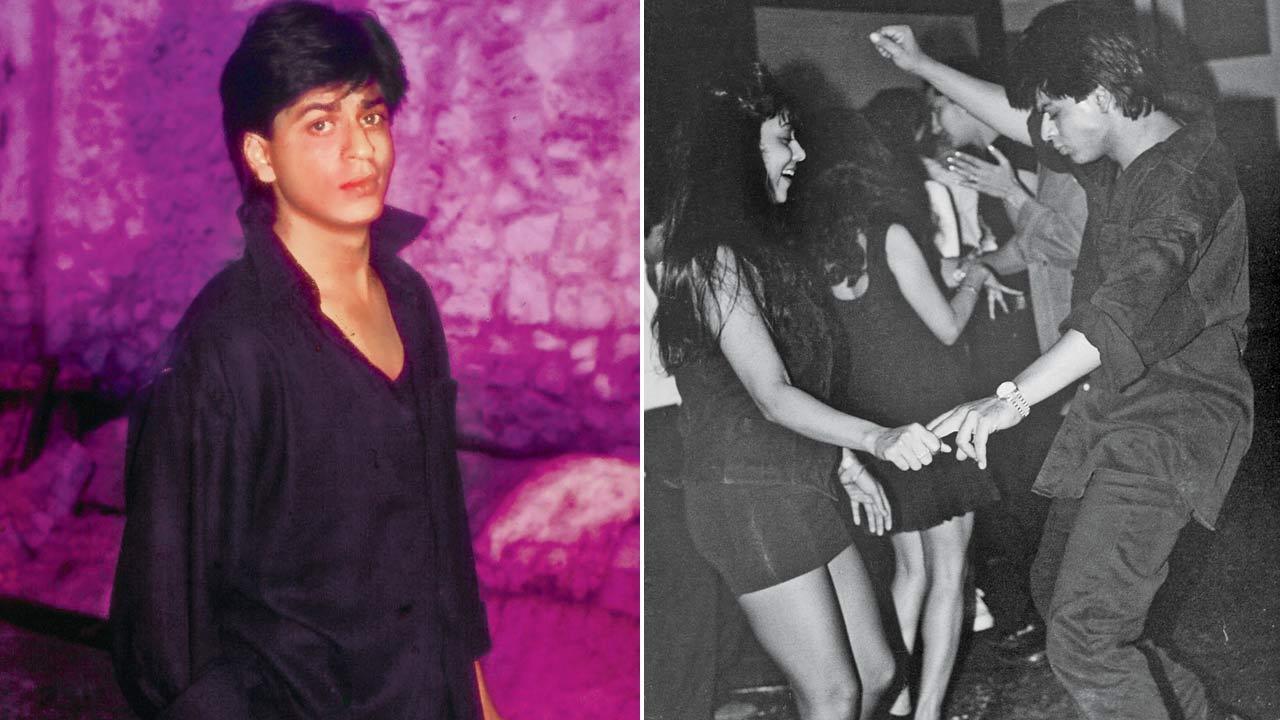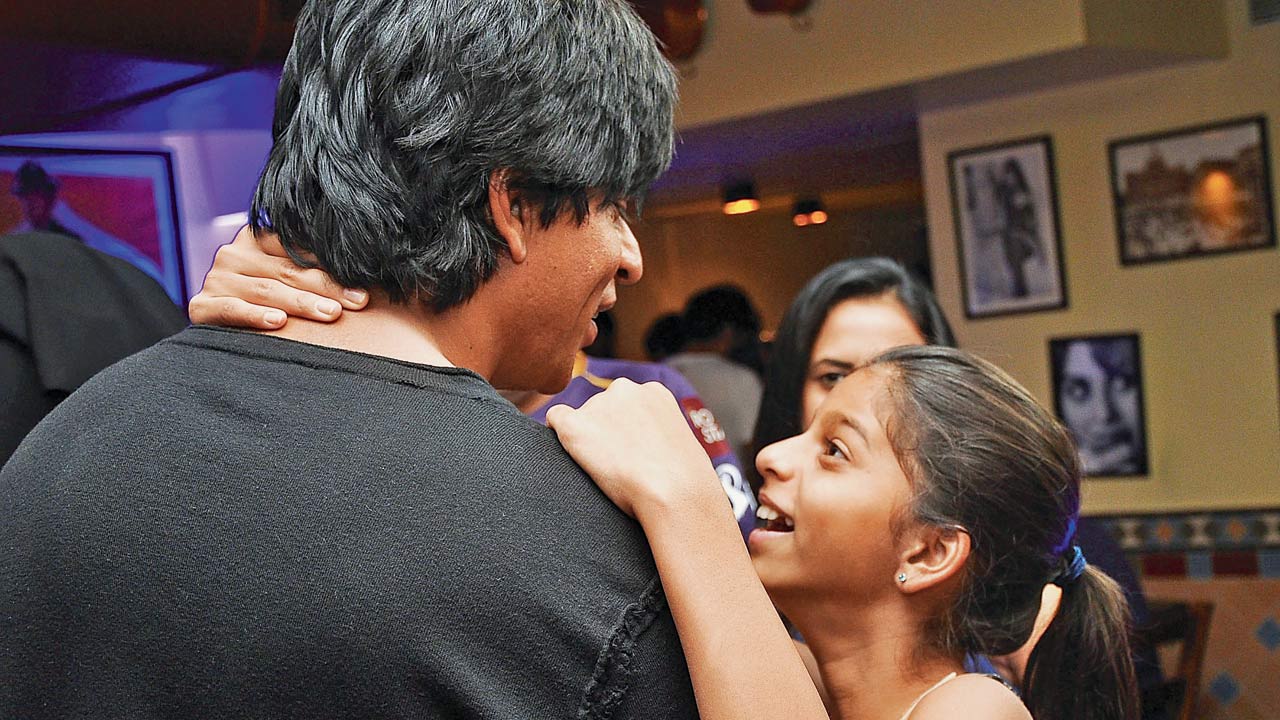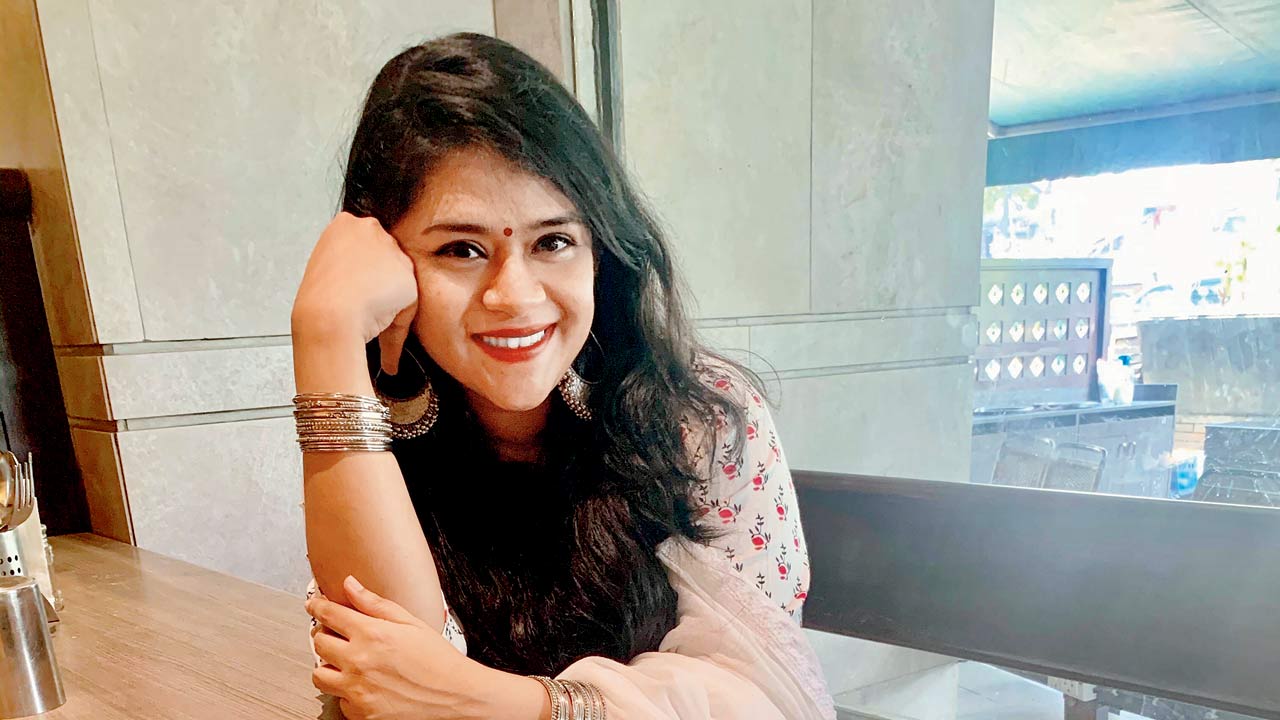A new book aims to encapsulate what actor Shah Rukh Khan means to his fans. This extract talks about an early hit, Fauji, and how it heralded the birth of the superstar we know, and love, even now

Shah Rukh Khan; (right) Dancing through life: Shah Rukh and Gauri show young love’s got rhythm
Shah Rukh’s breakthrough in television came with Fauji, helmed by the jovial Colonel Raj Kapoor, who appeared on Jeena Isi Ka Naam Hai to talk about the actor. Speaking about Colonel Kapoor, Shah Rukh said, “I never thought I could act on screen. Let me share a story: After my father passed away, my mother and I were searching for a house to rent. When we found one, my mother insisted that I see it first before confirming. When asked where I was, she replied, “He’s off acting.” Kapoor’s son-in-law Kamal Dewan suggested I go to him, who was directing a serial. That’s how Fauji, which was aired in 1989 and had thirteen episodes, came to be.”
ADVERTISEMENT
Fauji served as Kapoor’s homage to the Indian Army, presenting a realistic portrayal of cadet life as young men trained to become commandos. Shah Rukh was already acting in another serial titled Dil Dariya at that time and shot for Fauji during lunch breaks—such shooting schedules were common for actors then who worked on multiple projects at the same time. The audition for Fauji involved a rigorous physical test, including a 1.5-mile run at dawn, followed by an impromptu boxing match. Shah Rukh impressed with his discipline, by not giving up on the race even when many co-auditioners dropped out. He was initially designated to land a smaller role while Kapoor’s son Bobby was to play one of the leads, Abhimanyu. But Bobby, who was already the cameraman, had to bow out. It’s the way of this industry, as Karan Johar points out in Zoya Akhtar’s debut movie Luck By Chance: “Industry mein outsiders aise hi toh aatey hai. Koi alag tarah ka role likhta hai, koi badaa star nahi karta hai and finally ek naye ladke ko break mil jata hai [This is how outsiders get into the film industry. Someone writes a different sort of a role, big stars refuse to do it and then finally a newbie gets his break]. Zanjeer was turned down by seven actors before a struggling star, Amitabh Bachchan, picked it up.”
 Holding his heart in his arms. Shah Rukh and his favourite girl, daughter Suhana. Pics Courtesy/Pradeep Bandekar/Harpercollins India
Holding his heart in his arms. Shah Rukh and his favourite girl, daughter Suhana. Pics Courtesy/Pradeep Bandekar/Harpercollins India
Shah Rukh has been destiny’s child in that sense, or probably was always at the right place at the right time. His two big Bollywood hits, Darr and Baazigar, landed in his kitty just like that.
How Shah Rukh landed Fauji, over and above the rigour he showed, is funny, to say the least. At the launch of Samar Khan’s and Sonali Kokra’s book SRK: 25 Years of a Life, he recounted, “I went there, I auditioned and he gave me a sweet role—in the whole Fauji serial, the Colonel orders me to go and count the crows on the tree. I would run and say, ‘There are four crows’. This was my role in the whole serial. I thought this was so strange… How could I tell my family that this was my role? … I did that and it was one of the nicest roles, and they’ve all loved me like a family. I am not saying this with false humility, but maybe the goodness I have at this age is because of the wonderful men and women I’ve met in my life.”
Amina Shervani, who wrote and acted in Fauji (as Kiran Kochar), said that for its time, Fauji was an extremely expensive show to make. It cost nearly Rs 2 lakh per episode to shoot. It was facing a four-year delay in its pilot launch. The Fauji team rallied in 1988 to ensure an early release the following year. They obtained permissions from the Ministry of Defence, Doordarshan and the Army headquarters. Despite challenges, the dedicated team pooled their talents and resources to bring the series to fruition. In an interview to ThePrint, Shervani said, “I remember the Army was supposed to give us sten guns and other equipment to use, but they didn’t let us touch anything. So I flirted with a commando to steal a broken, defunct sten gun, and made a mould of it. We made twelve aluminium moulds that looked quite real. And one day, I was carrying them back from the studio in an auto, and the cops stopped me, and there I was—with twelve real-looking guns. Fortunately, we had done films for Delhi Police before that, so the police commissioner knew what we were really doing.”
This was the late 1980s and the turmoil in Punjab meant that procuring materials such as fuel for the demolition and explosion scenes was difficult, as the authorities had put strict rules in place. And so, for the scenes in the show, these had to be sourced from Shah Rukh’s mother, who owned a kerosene company. Dynamite was acquired through connections with friends who had contracts for stone and mica mining in the Aravallis, allowing the team to create their own explosives. One would think these would be the biggest challenges in the making, but the real hurdle was getting Shah Rukh to cut his hair. Shervani said, ‘”Shah Rukh just wouldn’t cut his hair. He would keep smoking, and his mother would be worried that nothing would come of his passion for theatre.”
When Fauji was aired, it resonated with people in a big way. Shah Rukh’s charm captivated viewers, propelling him to the forefront of the show. His character, Abhimanyu, became central to the story, showcasing Shah Rukh’s knack for both romance and action. This was the first time he started becoming a household name. One of the many fans of Shah Rukh from that era is my own mother, Ellora Basu. When I first told her I am working on this book, she recounted to me how her love for Shah Rukh dates back to the late 1980s. “Watching Fauji was like witnessing the birth of a superstar. Shah Rukh Khan’s charm as Abhimanyu Rai was not to be missed, and we knew he was destined for greatness from the very first day the show aired.” As a child of that time, she told me how there was a general sense of fatigue with the trope of the ‘Angry Young Man’ that ruled movies and television then. “I wasn’t interested in television until Fauji came along. That was a young show. It had stories that my siblings and I could relate to. The show brought in young people to television viewing. A large part of our love was because of Shah Rukh. He was always a sincere actor, but more than anything else, he had the ability to charm you. It could be called screen presence, but in his unique goofy, boy-next-door way, he was someone you’d want to root for in a story. That’s the sign of a hero!”
Extracted with permission from Shah Rukh Khan: Legend, Icon, Star by Mohar Basu, HarperCollins India
‘Even at his worst, he finds it in himself to be a kind person’

Author and mid-day writer Mohar Basu says that the book, Shah Rukh Khan: Legend, Icon, Star, came into existence because they wanted to view Shah Rukh and his influence on cinema, culture and community from a third eye perspective including the lens of his fans. We spoke to her about what inspired her most as she wrote the book, and how she managed to write it as a detached writer, and not die-hard fan.
Excerpts from an interview.
What anecdote about SRK inspired you the most personally after writing this book?
There are a lot of absolutely fantastic stories about Shah Rukh, and a great selection of these has made it to the book. But the one that stuck with me was this story about Shah Rukh rushing back to India after his wife had a miscarriage while he was in New York shooting for Pardes. To get home quickly, he flew from LA to New York and then caught an Air India flight to India. There was rush and confusion at the airport and a fan persistently followed him for an autograph, despite seeing him flummoxed. When he finally reached his gate, he realised the lady actually was Akshay Kumar’s fan and thought he was Akshay. He didn’t want to break her heart so quickly signed an autograph as “Akshay Kumar”. This story shows what makes him as loved as he is. Even at his worst, he finds it in himself to be a kind person.
As a journalist, writing about fans and a star, what were some things you were careful about—so that it didn’t end up pandering to a star, but spoke of something deeper?
The relationship that fans have with the star they love has been a point of academic research. We all know how powerful and dynamic fandoms are. The approach we had decided early on in the project was to view Shah Rukh and his influence on cinema, culture and community from a third eye perspective including the lens of his fans. Why do people love him so much for so long is a question that was repeatedly asked at every step along the way. My editor at HarperCollins India, Bushra Ahmed, in fact, kept reminding me that fan psyche was at the forefront of this book. This is why we decided to write an entire chapter about why people love and desire him and tackled every aspect of it. Most interviews were done for this chapter because everyone found different things that drew them to him. Married women loved his love story, younger women saw him as a benchmark of what they seek from a man they are in a relationship with, some love the fact that he is a great father and everyone finds themselves drawn to him because he is respectful. The men loved his ability to work hard. The approach was pretty sociological. Some amount of my own training as a journalist and my education in sociology came in handy. We have tried to create a multi-layered, non-lateral narrative which I hope best portrays the power that SRK holds. The love for Shah Rukh runs deep and his charm is an added bonus.
What’s something your book has that you don’t think has been ever addressed about SRK before?
The impact of Shah Rukh Khan on community and culture, not just cinema, is at the heart of this book. The broad highlights of his life are well-known but this book looks deeper into the phenomenon that is SRK. For instance, take my favourite SRK film—Chak De India. The finest sports film India has ever made. And why has that movie been hard to top? It blended in entertainment and social themes perfectly. No other film has been able to reflect how diverse the country is and then SRK says that iconic dialogue— “Mujhe states ke naam na sunai dete hai, na dikhai dete hai. Bas ek mulk ka naam sunai deta hai.” Or more recently, a film like Dear Zindagi. A fan spoke about how she had always felt different and knew she wasn’t okay but Dr Jug made her to check in to therapy and she is better because of it. We often discuss how stars, especially in a country like India, actually impact real lives and how fans look up to them to inform their own perspectives. This book attempts to do show you how Shah Rukh Khan goes beyond being just a superstar.
 Subscribe today by clicking the link and stay updated with the latest news!" Click here!
Subscribe today by clicking the link and stay updated with the latest news!" Click here!







